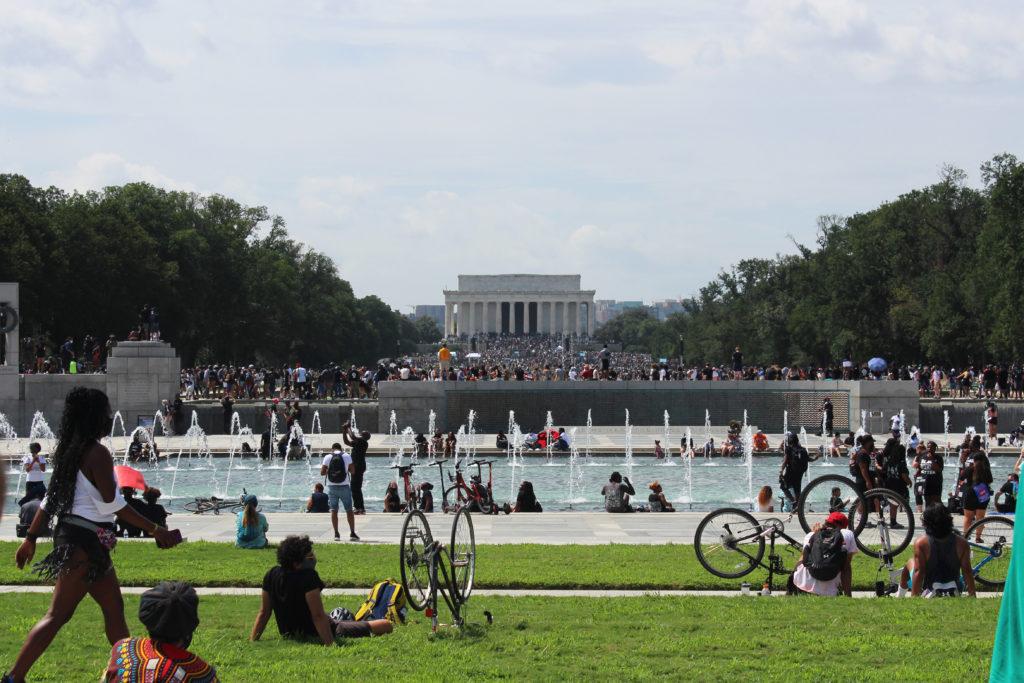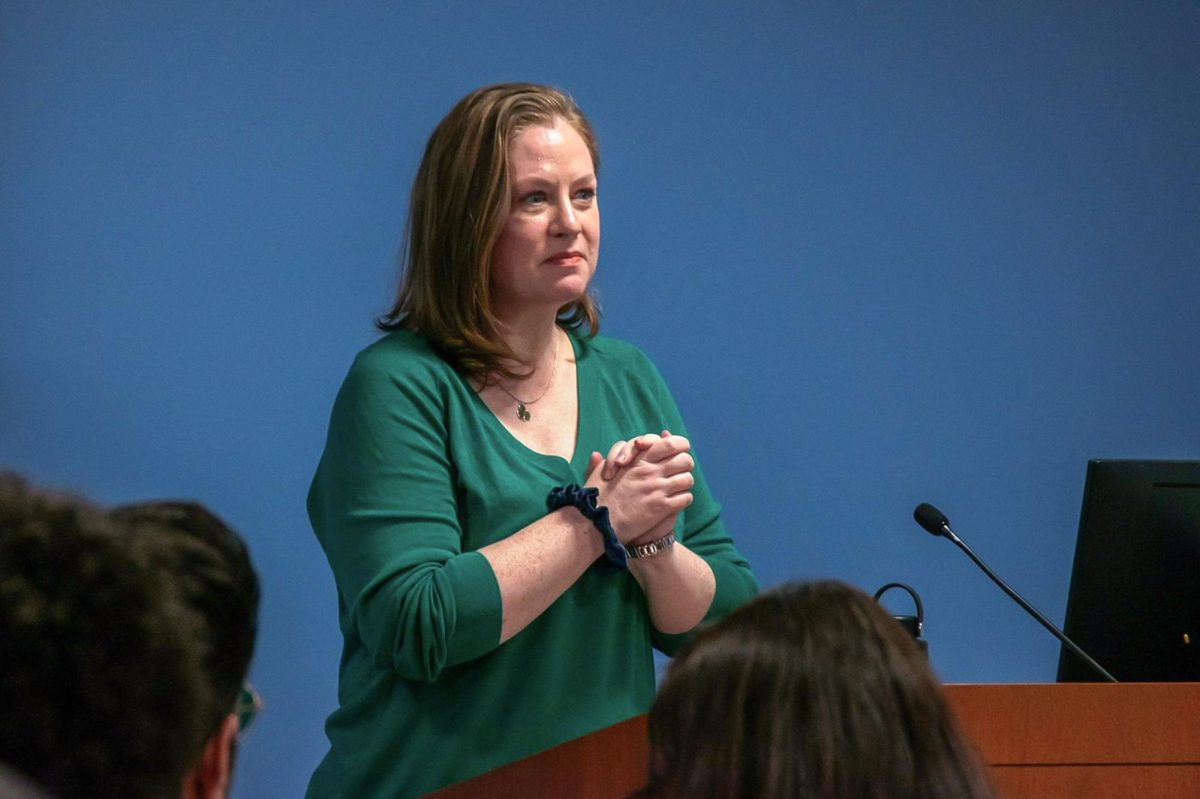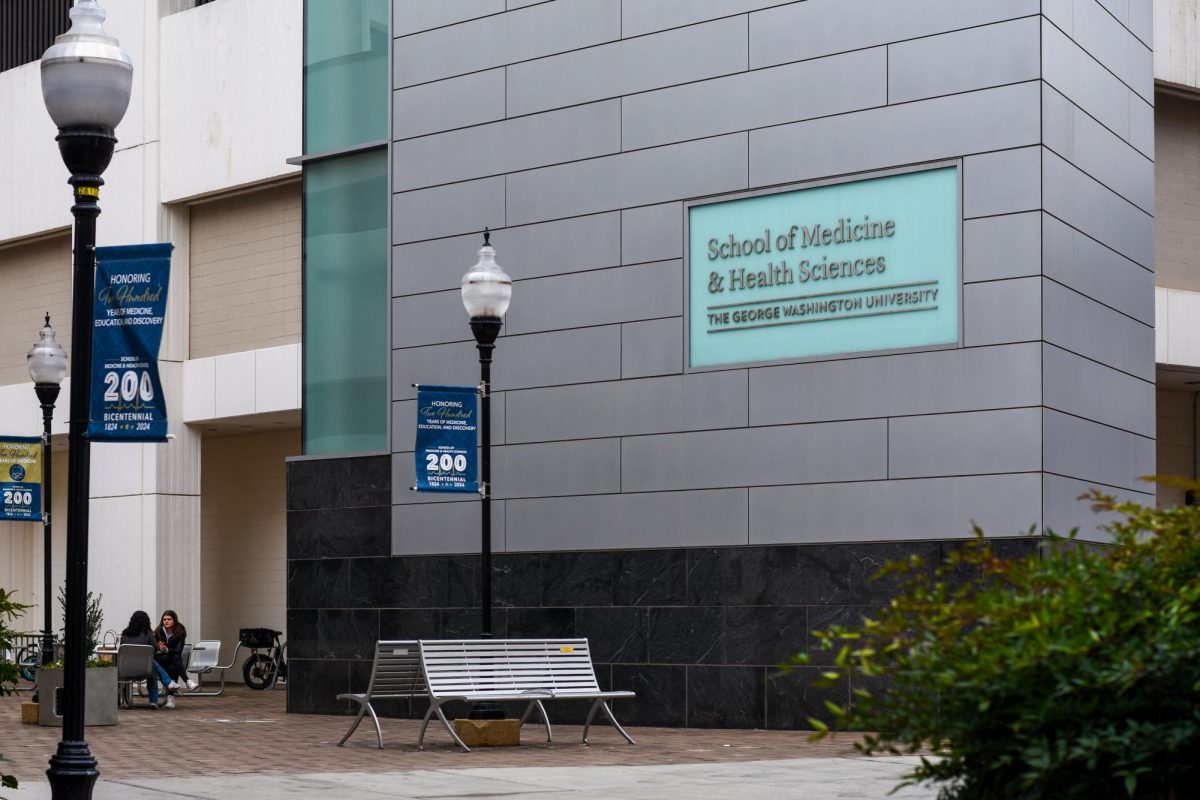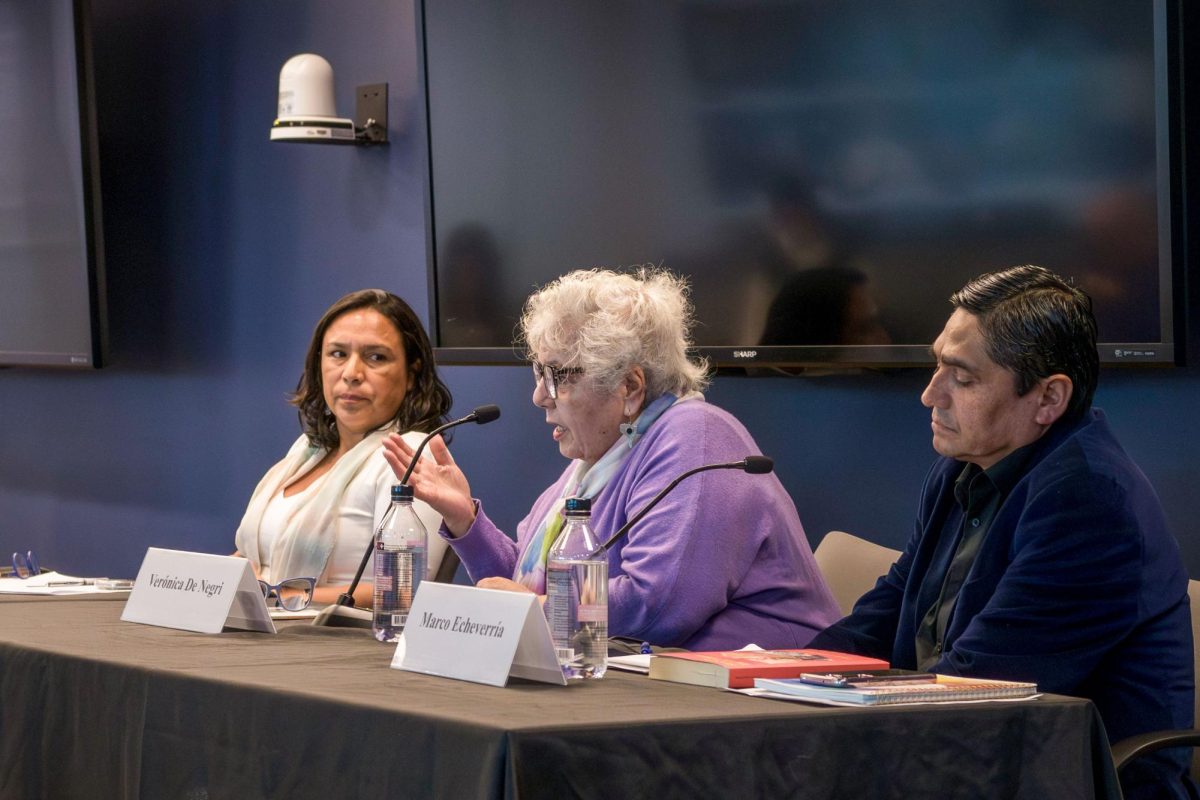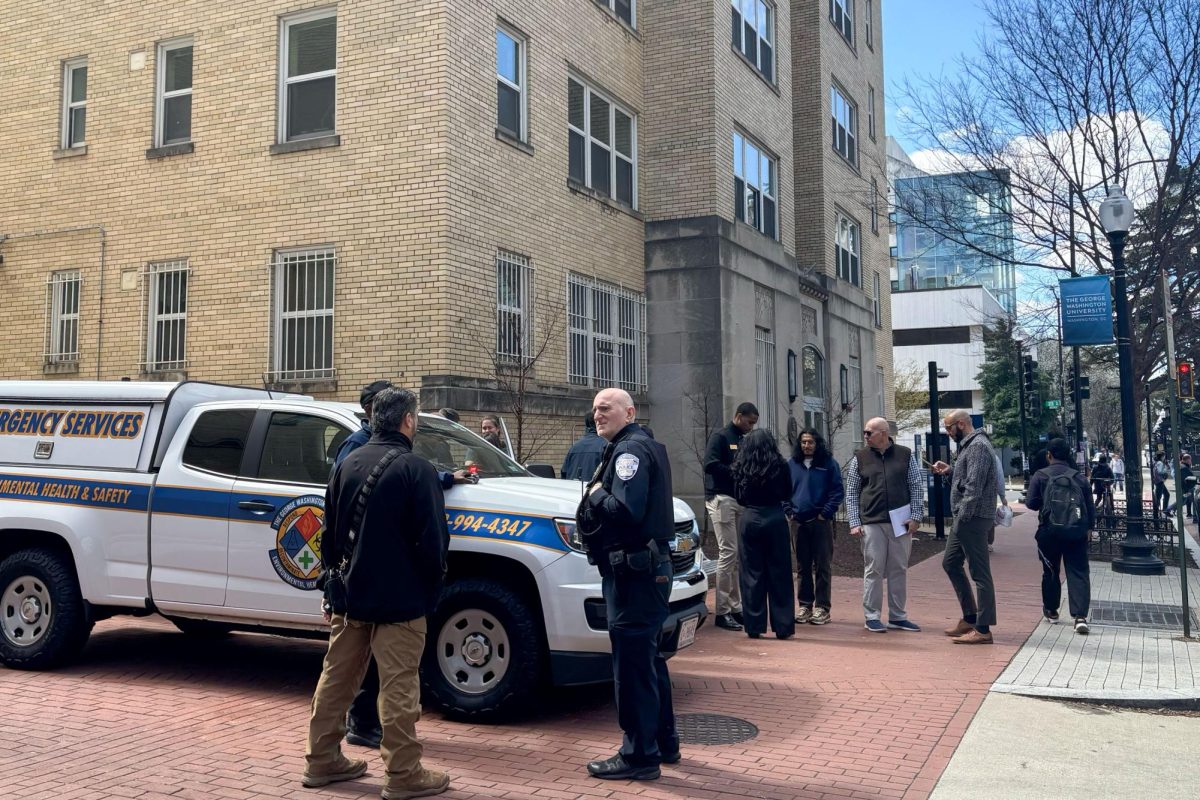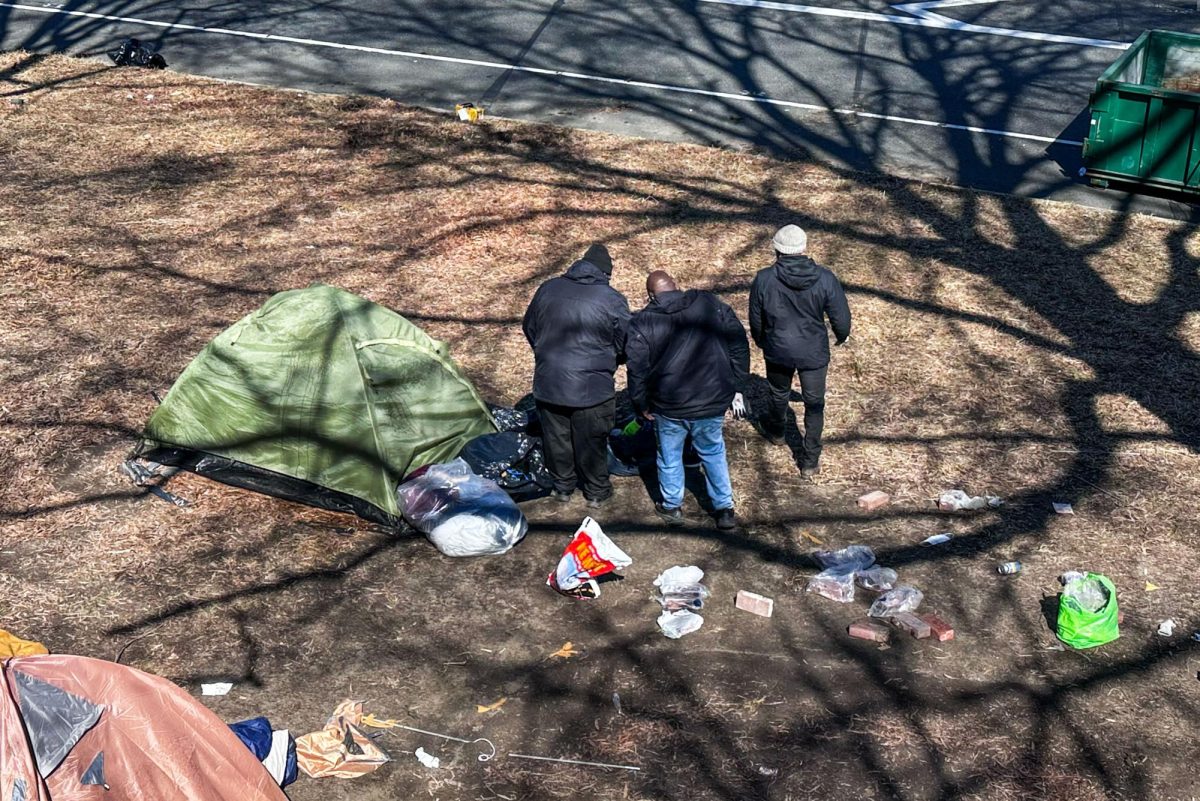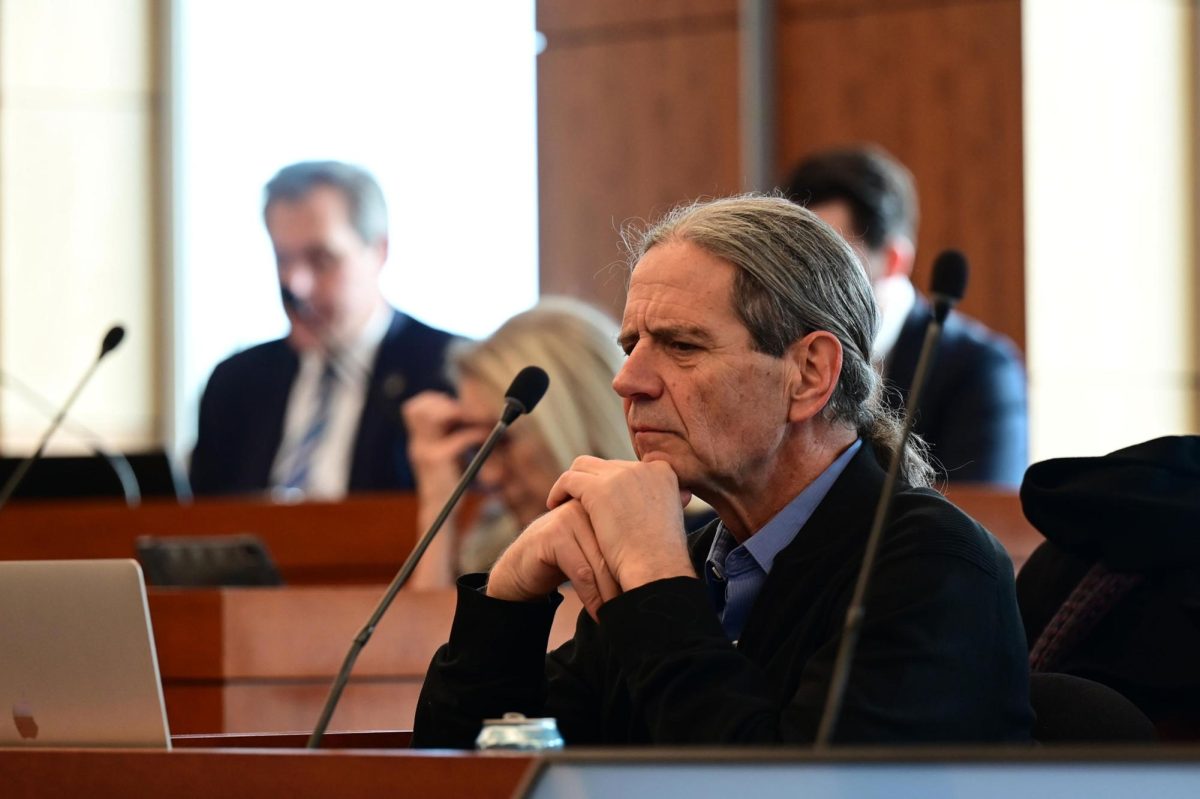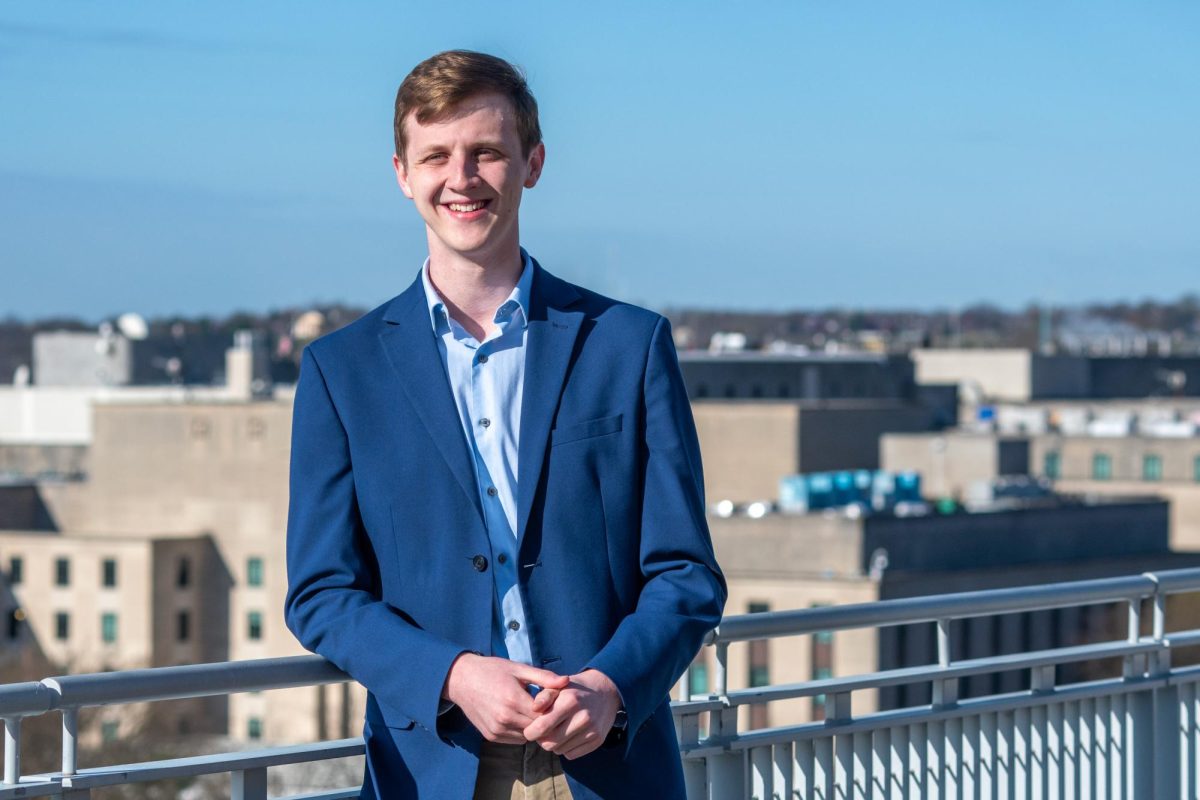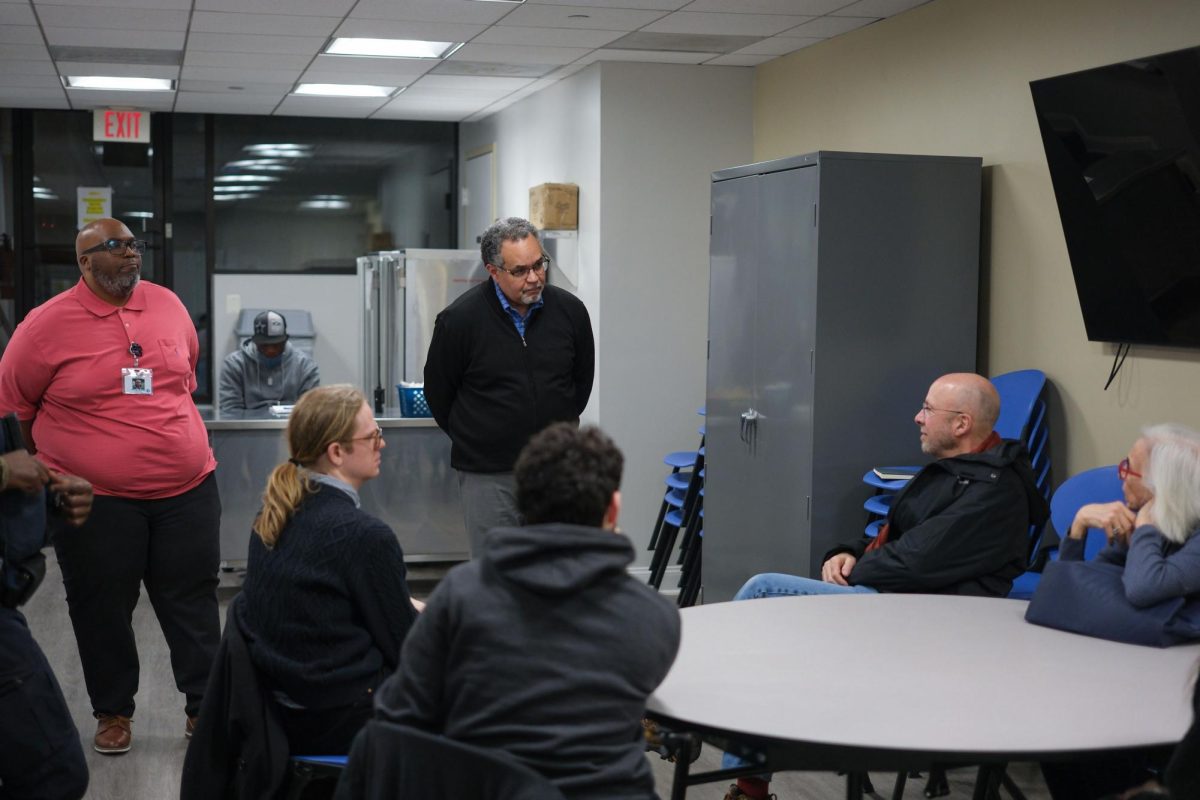Thousands descended on the Lincoln Memorial Friday for the March on Washington, a demonstration to protest police brutality and racial discrimination.
The event commemorated the 57th anniversary of civil rights activist Martin Luther King Jr.’s “I Have a Dream” speech, following months of rallies across the globe to denounce police brutality and systemic racism. Protest organizers coined the demonstration the “Get Your Knee Off Our Necks” March on Washington to recognize George Floyd, a Black man who died in May after a Minneapolis Police Department officer knelt on his neck for nearly nine minutes.
Marchers lined up along the Reflecting Pool at about 8 a.m. to get their temperatures taken before joining the event. Participants stood nearly neck-and-neck on the Mall as event organizers took safety measures to mitigate the spread of COVID-19, operating virus testing sites and requiring face coverings.
[gwh_image id=”1124720″ credit=”Phebe Grosser | Photographer” align=”none” size=”embedded-img”]A volunteer with the National Action Network takes the temperature of a protester.[/gwh_image]
At about 11 a.m., more than 20 speakers stood on the steps of the Lincoln Memorial urging marchers to vote in the November election and lobby congresspeople to back the George Floyd Justice in Police Act and John Lewis Voting Rights Advancement Act, two bills that would take steps to curb voter suppression and police misconduct.
[gwh_image id=”1124727″ credit=”Alexander Welling | Senior Staff Photographer” align=”none” size=”embedded-img”]Protesters hold up signs reading “Black Lives Matter” during the rally.[/gwh_image]
“What we need is change, and we’re at a point where we can get that change, but we need to stand together, we have to vote,” said Tamika Palmer, the mother of Breonna Taylor, an EMT from Louisville, Kentucky who was shot in March by police serving a no-knock search warrant.
Other speakers included Floyd’s brother and sister, White House reporter April Ryan, U.S. Rep. Ayanna Pressley, D-MA, and Yusef Salaam, a social justice activist and one of the five men wrongfully convicted in the 1989 Central Park Five case.
The speakers said they invited those who lost a family member to police brutality to speak and say blessings before the march started. Several families spoke, including the relatives of Anton Rose, Ahmaud Arbery and Michael Brown.
[gwh_image id=”1124721″ credit=”Phebe Grosser | Photographer” align=”none” size=”embedded-img”]Protesters march down the side of the Lincoln Memorial.[/gwh_image]
Reverend Al Sharpton, a civil rights activist and the founder of the National Action Network – one of the event organizers – said the march repeats calls from the initial 1963 March on Washington for racial equality, but the protest this year emphasized the need to combat police brutality, voter suppression and the ongoing pandemic. Sharpton led a chant saying “Enough is enough” from the steps of the Lincoln Memorial.
“We are the dream keepers, which is why we’ve come today Blacks, and Whites, and all races and religions, and sexuality orientations, to say this dream is still alive,” Sharpton said. “You might kill the dreamer, but you can’t kill the dream.”
Sharpton also discussed the shooting of Jacob Blake, who was shot by police in the back seven times Sunday retreating to his car. He said police should only use deadly force when facing an “extenuating circumstance,” which he said was not the case when Blake was shot and critically injured.
“What could have been the circumstance when a man is running away from you?” he said. “What could have been the circumstance when a man is trying to get into his car?”
[gwh_image id=”1124729″ credit=”Lillian Bautista | Senior Photo Editor” align=”none” size=”embedded-img”]Yellow tape donned with “Black Lives Matter” draped fencing along the perimeter of the National Mall.[/gwh_image]
David Clunie, the executive director of the Black Economic Alliance – a coalition of business leaders and advocates in support of economic prosperity in the Black community – said the nation is at an “inflection point” and must fight against social and economic injustice, which disproportionately affect Black Americans. He said the movement’s work must include implementing skills training, closing the pay gap between White and Black Americans and building generational wealth.
“And just like we’re showing up across America, we have to show up and vote,” Clunie said.
After more than three hours of speeches, marchers wrapped around the National Mall en route to West Potomac Park, where King’s memorial is located. During the march, protesters chanted the names of Black Americans killed by police and “no justice, no peace.”


